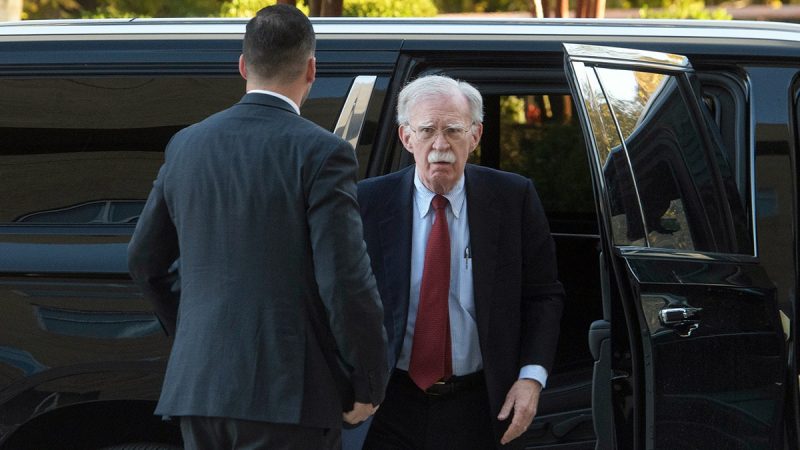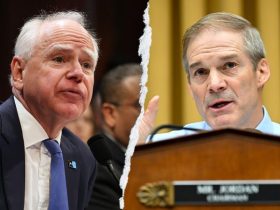Lawyers for John Bolton and the Trump administration appeared in federal court in Maryland Friday to discuss next steps in the criminal case for Trump’s former national security adviser, who was indicted last month on charges of mishandling classified and sensitive materials.
Bolton was indicted last month on 18 criminal charges stemming from his alleged retention and transmission of classified and sensitive materials during Trump’s first term, including national defense information.
Authorities have accused him of sending more than 1,000 ‘diary-like’ updates to his wife and daughter between 2018 and 2019 via emails and texts, including classified information from intelligence briefings and meetings with foreign officials.
The pre-trial hearing in Bolton’s case on Friday was largely a procedural one, centered on next steps for both parties to review the breadth of discovery materials Bolton is accused of illegally retaining and transmitting.
If nothing else, it underscored the fact that Bolton’s trial is unlikely to take place for quite some time. The deadlines that both parties agreed to will put discovery in the case well into 2026, with a status conference in the case scheduled for October of next year. A trial date has not yet been set.
U.S. District Judge Theodore D. Chuang seemed reluctant to accept the government’s lengthy proposed timeline for the document review process to take place, noting the government’s obligations under the Speedy Trials Act, which sets time limits for federal criminal trials.
Seven months ‘is a very long time,’ Chuang told Thomas Sullivan, the lead prosecutor for the Justice Department, referring to the proposed May 22, 2026, date to produce discovery.
‘How many documents are in play here? Frankly, most of this should have been done before the indictment,’ Chuang noted. ‘Even assuming that couldn’t be completed, I still can’t understand why it would take seven months.’
In response, prosecutors noted that they still need to sort through some 1,000 pages of single-space documents obtained from Bolton’s home, and reiterated they have set ‘aggressive deadlines’ for the intelligence community to review the documents.
Bolton’s lawyer, Abbe Lowell, said in response that there are as many as three electronic devices that they haven’t ‘even started the process’ of reviewing, and which all must be reviewed by the filter team.
Chuang ultimately agreed to grant a modified review schedule for the documents in question. Parties were ordered to submit by January 12 the first tranche of 10 documents prosecutors have described as being at the ‘heart’ of Bolton’s indictment.
They will also submit a joint status report detailing for the court where they are in the discovery process, and proposing the next interim deadline and the scope of materials that will be reviewed before then.
The hearing comes as Bolton has attempted to cast his criminal case as part of a broader effort by the Trump administration to go after his perceived political foes, including former FBI Director James Comey and New York Attorney General Letitia James.
Still, the case against Bolton differs significantly.
Unlike those cases, Bolton’s investigation into his handling of classified materials moved forward in part during the Biden administration, and career prosecutors in the U.S. Attorney’s office signed off on the charges — a contrast to the cases against Comey and James, which were brought by Trump’s former attorney, Lindsey Halligan.
Bolton, who pleaded not guilty to all charges last month, was ordered released by a magistrate judge on the condition that he remain in the continental United States and surrender his passport.
In a statement released after his indictment, Bolton said, ‘I have become the latest target in weaponizing the Justice Department to charge those he deems to be his enemies with charges that were declined before or distort the facts.’










